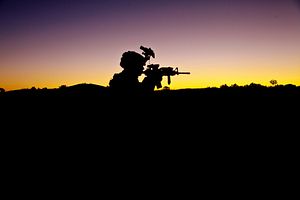Afghan civilians are becoming casualties of war in alarming numbers. More than 28,000 civilians have been killed and more than 50,000 injured since 2009, according to the United Nations Assistance Mission in Afghanistan (UNAMA). This number does not include thousands of others who died between 2001 and 2008.
2017 saw 3,438 dead and 7,015 injured — 65 percent of the casualties were attributed to the anti-government elements, namely the Taliban and Islamic State. Twenty-five percent of these casualties have been attributed to the pro-government elements (including 16 percent attributed to the Afghan National Security Forces, or ANSF, and 2 percent to international military forces). Eleven percent of these casualties were attributed to crossfire, and 1 percent to border shelling from Pakistan, while the rest cannot be attributed to any warring parties.
In January 2018, a car bomb attack by the Taliban using an ambulance killed over 103 and injured over 200 people, a textbook example of a war crime. Incidents like these happen in highly populated areas where civilians go about their daily lives. In this particular case, the attack took place near the Ministry of Interior and a hospital where men, women, and children gathered to receive public services.
Problem
The main problem is the multiplicity of warfronts in Afghanistan. The Afghan government is currently fighting over 20 different terrorist groups, as well as drug lords, while also attempting to rebuild its weak institutions and garner legitimacy. Another problem is the lack of attention and prioritization of the matter of civilian lives by both national and international actors.
Incident after incident, the Afghan government promises to avenge or launch investigations, which never end. Afghan officials send their thoughts and prayers with no real impact on prevention of further deaths. A recent declaration by the Afghan Ulema (religious scholars) barely mentioned the issue of civilian protection.
Consultations about a possible peace process overlook the issue of the protection of civilian lives. Emphasis on the prevention of civilian casualties has rarely surfaced in fora such as the Quadrilateral Coordination Group, a forum discussing a possible framework for peace between Afghanistan, China, Pakistan, and the United States.
Solution
The ANSF must ensure that their rules of engagement and operations include measures that ensure the safety of noncombatants. Protection of civilians must be institutionalized. Stricter control of Afghanistan borders, hunting down precursors to explosives, and raising the issue at the UN and other international arenas are some of the other ways to address the problem.
Among international forces, the U.S. military, which carries out most of the airstrikes in Afghanistan, has not only moral and legal obligations to protect civilians, but also for practical reasons it has to take the matter seriously. U.S. military veterans such as General David Petraeus and Chris Kolenda have acknowledged that civilian casualties by international forces sustained the war and concluded that protection of civilians is essential to the success of U.S. mission in Afghanistan.
The rest of the international community and humanitarian organizations bear the responsibility to give voice to the voiceless. Recording civilian casualties is a great service to the families of the victims, who would hopefully one day be able to seek justice, but recording alone is not enough. The focus should be on prevention. How can further deaths of innocents be prevented? The international community such as the UN, European Union, Organization of Islamic Cooperation (OIC), and others can help in building the capacity of the ANSF. They can also raise concerns about the matter with respective actors and emphasize on protection of civilian.
For the Taliban, if it is serious about taking part in a peace process, it must cease attacking civilian targets. No one is winning this war. The Afghan government has made a generous offer by signalling it is willing to enter into negotiations without conditions. The Taliban should seize the moment and enter into negotiations with the Afghan government. The sides should agree to a ceasefire which can help drastically reduce the suffering of civilians.
For too long Afghan civilians have suffered from this chronic conflict. They deserve to be included in national and international debates about war and peace. Civilian deaths shouldn’t be treated merely as statistics and or an elephant in the room that no one wants to talk about.
Said Sabir Ibrahimi is a Research Associate for Afghanistan-Pakistan Regional Project at New York University’s Center on International Cooperation. Opinions expressed in this article are personal. Follow at @Saberibrahimi

































